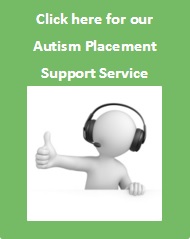One-day training at level 3
Our one day training on Autism Awareness and Support provides core information and understanding for all customer facing staff members in line with the National Autism Strategy. This training is suitable for public and private sector teams who are likely to encounter individuals with autism.
The national autism strategy
“The first and fundamental step of our strategy is to increase awareness and understanding of autism across all public services…This is essential to making existing policies work for adults with autism – across the entire autistic spectrum.”
“The strategy is built on a fundamental recognition: too many people with autism are missing out on the chance of the quality of life that others enjoy…. Above all, the strategy seeks to put the needs of adults with autism on the map in every area, so that throughout England the right services can be developed, commissioned and shaped to meet those needs.”
Fulfilling and rewarding lives’. The strategy for adults with autism in England (2010).
The Autism Act (2009) and subsequent Autism Strategy, ‘Fulfilling and rewarding lives’ (2010), put autism awareness and understanding at the centre of appropriate support for adults with an autistic spectrum condition across all public sector agencies. This legal framework was born from an acknowledgement that many people with autism were not appropriately supported to access the same opportunities as others, because of a lack of awareness and understanding of the condition.
Awareness and understanding in the public sector is intended to filter through to the wider community, providing equal opportunities for people with autism in terms of accommodation, learning, leisure and employment.
An autism skills and knowledge list has been developed jointly by Skills for Care, Skills for Health and the National Autistic Society. This project was funded by the Department of Health as part of its commitment to ensure that people with autism are appropriately supported.
It is expected that awareness and understanding of autistic spectrum conditions would be delivered at three levels:
- Basic Awareness (Level 2) – for everyone whose day-to-day role brings them into contact with one or more people who have autism, including ancillary and support staff or those who may be a point of contact for those accessing services; all frontline staff, managers, employers and commissioners.
- Intermediate skills and knowledge (Level 3) – for everyone who has frequent or intensive contact with people who have autism and also for a proportion of staff in all teams or services; appropriate for frontline staff, managers, employers and commissioners and particularly recommended for staff who may have infrequent time with people with autism, but have a high impact on the outcome.
- Specialist development (Level 5) – for people in roles focused specifically on people with autism and who may be involved in diagnosis, assessments, sensory profiling and strategic planning of services.
Our training reinforces the “Underpinning values and attitudes” that are expected to be delivered at all three levels, as listed below:
“People with autism should be given the same opportunities as the rest of the population. This should include but is not restricted to, the right to:
- be independent
- be regarded and treated as individuals
- make choices for themselves
- be treated in an equal and fair way
- be treated with respect, dignity and confidentiality
- access specialist support to realise potential
- receive compassionate and non-judgemental support, and to give it in their own roles as parents, carers, worker or volunteers”
Our one-day training provides delegates with under-pinning knowledge at Level 3 as above and covers:
- Etymology and prevalence
- Possible causes and diagnosis
- Co-morbidity
- History
- Characteristics of autism
- Behaviours and impact
- What works?
- Legislative requirements and guidance
The course is delivered in a workshop style providing delegates with interactive exercises and opportunities for discussion in relation to their own field and to explore how people with an autistic spectrum condition can be supported in the best way in order to fulfil legal requirements and to provide them with an enhanced quality of life.
You can find further details in the attached flyer or by emailing: info@livingautism.co.uk.



